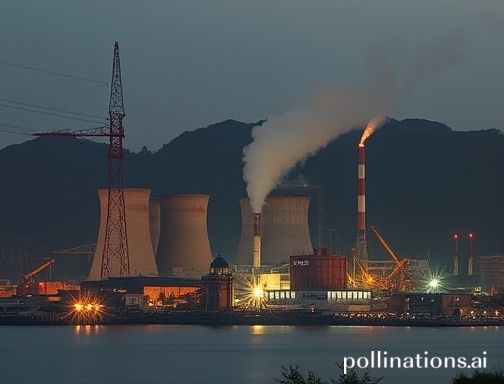Taiwan's Nuclear Power Phase-Out: A Turning Point with Unforeseen Consequences
As Nuclear Power Ends, Taiwan Faces Increased Energy Costs and Environmental Concerns

With the expiration of the license for the second reactor at 核三廠 (Nuclear Plant 3) on May 17th, the last operating nuclear power generator in Taiwan is entering its decommissioning phase. This event officially marks Taiwan's transition to a 非核家園 (non-nuclear homeland).
For the groups that have advocated for a non-nuclear Taiwan for many years, and for the Democratic Progressive Party (DPP), who have incorporated the non-nuclear policy into their platform, this moment represents the realization of a long-held ideal. However, as Taiwan moves forward, the demand for electricity continues to grow. This development suggests that the outcome may not be as ideal as initially envisioned. Instead, there is a rising risk to energy security, pressures for electricity price increases, and concerns about worsening air quality, leading to what some may view as a challenging situation.
In essence, the nation's electricity supply faces the prospect of becoming more expensive, more polluting, and potentially less reliable.
Other Versions
El abandono de la energía nuclear en Taiwán: Un punto de inflexión con consecuencias imprevistas
L'abandon progressif de l'énergie nucléaire à Taïwan : Un tournant aux conséquences imprévues
Penghentian Penggunaan Tenaga Nuklir Taiwan: Titik Balik dengan Konsekuensi yang Tak Terduga
L'abbandono del nucleare a Taiwan: Un punto di svolta con conseguenze impreviste
台湾の脱原発:予期せぬ結果をもたらす転換点
대만의 탈원전: 예상치 못한 결과를 초래한 전환점
Pagtanggal ng Nuclear Power sa Taiwan: Isang Pagbabago na May Hindi Inaasahang Epekto
Прекращение использования атомной энергии на Тайване: Переломный момент с непредвиденными последствиями
การเลิกใช้พลังงานนิวเคลียร์ของไต้หวัน: จุดเปลี่ยนที่นำไปสู่ผลกระทบที่ไม่คาดฝัน
Giai đoạn loại bỏ điện hạt nhân của Đài Loan: Một bước ngoặt với những hệ quả không lường trước

